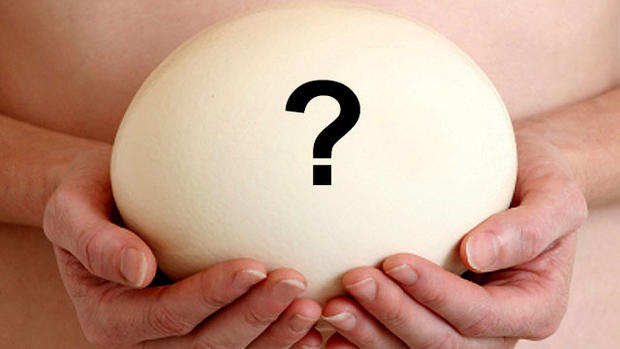Healthy birth after transplant from woman's own ovaries
A woman who had parts of her ovaries frozen before undergoing medical treatment in childhood has given birth to a healthy baby, after a transplant of her own tissue more than a decade later.
The success of this transplant, described in the Oxford University journal Human Reproduction, shows that freezing ovarian tissue, even before a girl's first menstruation, may provide hope for future fertility.
"It's really quite revolutionary treatment because it's opened up the opportunity for other children who may need to have chemotherapy -- either because they've got diseases of their blood or they may have cancer that needs chemotherapy," said Professor Adam Balen, Chairman of the British Fertility Society. "Now there is the potential to be able to freeze their ovarian tissue, reimplant it when they're adults and enable them to have children, which previously wouldn't have been possible."
The unidentified woman, who was born in the Republic of Congo, was diagnosed with sickle-cell anemia, a serious blood disorder, when she was five. By age 11, her family had moved to Belgium and her illness had progressed to the level where she needed a transplant of bone marrow from her brother. At 13, she was scheduled for chemotherapy to stimulate increased blood production, which was expected to leave her infertile. Her family agreed with doctors to freeze part of her right ovary.
Before the series of treatments, the 13-year-old girl had signs of nearing puberty, but had never had a menstrual cycle. After the chemotherapy was complete, doctors confirmed that her reproductive cycle had been halted. For several years, she had hormone therapy to induce puberty and normal menstruation.
When she wanted to have a child in her mid-20s, doctors stopped hormone therapy and performed laparoscopic surgery to re-attach some of her previously frozen ovarian tissue. They grafted four parts of the tissue onto the remaining ovary and uterine lining. The cells from the transplanted ovaries stimulated new egg production. Five months later, she began menstruating on her own.
"We didn't know what would happen when you transplant tissue (back) into a patient that is completely immature," said Dr. Isabelle Demeestere, a gynecologist and fertility researcher at Erasmus Hospital in Brussels, who treated the woman. "But once I saw that she had started ovulating and her hormone profile was normal, I was quite sure she would get pregnant."
More than two years later, at age 27, the woman became pregnant. Last November, she gave birth to a nearly seven-pound baby boy.
"It was a very happy moment," said Demeestere. "I was most happy for (my patient) because she was afraid if this didn't work, there would be no other option for her to have a baby."
In a number of previous cases, women who had ovarian tissue removed and then transplanted have given birth, but none had been treated at as young an age as this patient. The transplanted ovaries have typically only worked for a year or two before being removed, Demeestere said.
Other experts said it was encouraging news but didn't prove that ovarian transplants from childhood tissue are effective, since the girl had already begun puberty. Recent research points to differences in the ovarian follicles of younger girls, which may mean freezing ovarian tissue from children not yet near puberty would not be as effective.
"To have a child go through this and be able to have a baby years later is just remarkable," said Dr. Jill Ginsberg, a pediatric oncologist at the Cancer Center at the Children's Hospital of Philadelphia. She said these techniques were still experimental and that only a small number of young women would ever qualify for the treatment.
"There is hope for girls who are at high risk of (losing their fertility) but this is still going to be a long shot for anyone going through this kind of treatment," she said.
